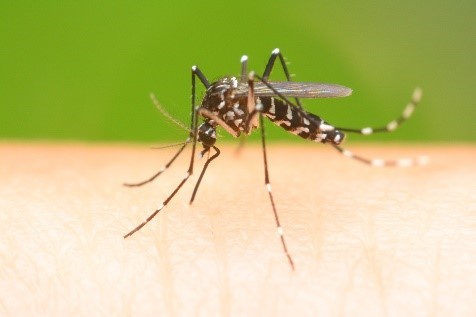ECOSOC at 80: Renewing Multilateralism in an Age of Global Uncertainty
On 23 January, the United Nations Economic and Social Council (ECOSOC) convened a commemorative session…
The Lancet Countdown recently launched its 2019 report tracking the effects of climate change on health. The message is clear: the future of an entire generation depends on our commitment and ability to keep global warming below 2 degrees Celsius. Climate change represents a major threat to our species, as infectious diseases, pollution and malnutrition will be worsened by rising temperatures. Children are among the most vulnerable.
 The publication classifies current efforts to address climate change as “intermittent at best”. The past five years are, together, the warmest in the modern history, as NASA indicates. For Lancet, fossil fuels are the primary driver of climate change. The carbon intensity of our energy system has remained unchanged since the 90s.
The publication classifies current efforts to address climate change as “intermittent at best”. The past five years are, together, the warmest in the modern history, as NASA indicates. For Lancet, fossil fuels are the primary driver of climate change. The carbon intensity of our energy system has remained unchanged since the 90s.
If we continue to follow the “business as usual” pathway, a child born today is likely to live in a world over 4 degrees Celsius warmer than the pre-industrial average. Higher temperatures will have profound impacts on food security, affecting global crop yield and increasing the risk of malnutrition. The number of deaths caused by air pollution will also dramatically increase. Today, air pollution is already responsible for nearly 4.2 million premature deaths worldwide, says the World Health Organization (WHO).
The impact of climate change on disease transmission is particularly concerning. Changes in environmental conditions are already favouring the transmission of mosquito-borne diseases, including malaria.
 Malaria is endemic in many regions worldwide. According to the WHO, Africa carries the higher burden – 92% of the cases and 93% of the deaths in 2017. Malaria claimed 435,000 lives that year, with almost 220 million cases reported in 87 countries. The children under five years old are the most vulnerable and accounted for 61% of the fatalities.
Malaria is endemic in many regions worldwide. According to the WHO, Africa carries the higher burden – 92% of the cases and 93% of the deaths in 2017. Malaria claimed 435,000 lives that year, with almost 220 million cases reported in 87 countries. The children under five years old are the most vulnerable and accounted for 61% of the fatalities.
The situation is likely to get worse. The Lancet’s research indicates that climate suitability for malaria transmission is increasing, especially in the highland areas of Africa. Using 1950s data as reference, the climate suitability for the disease averaged 29.9% above it from 2012 to 2017. Unfortunately, this is not limited to malaria – all pathogens studied presented an increasing rate of suitability.
We are facing life-threatening challenges, and there is no time for “business as usual”. As noted by the authors, overcoming health challenges caused by climate change requires new approaches to policy-making, business and research. Health will have to be at the centre of decisions if we want to move away from current catastrophic trends.
If you are interested in learning more about vector-borne diseases and innovative tools to eradicate malaria, visit the Target Malaria’s website.